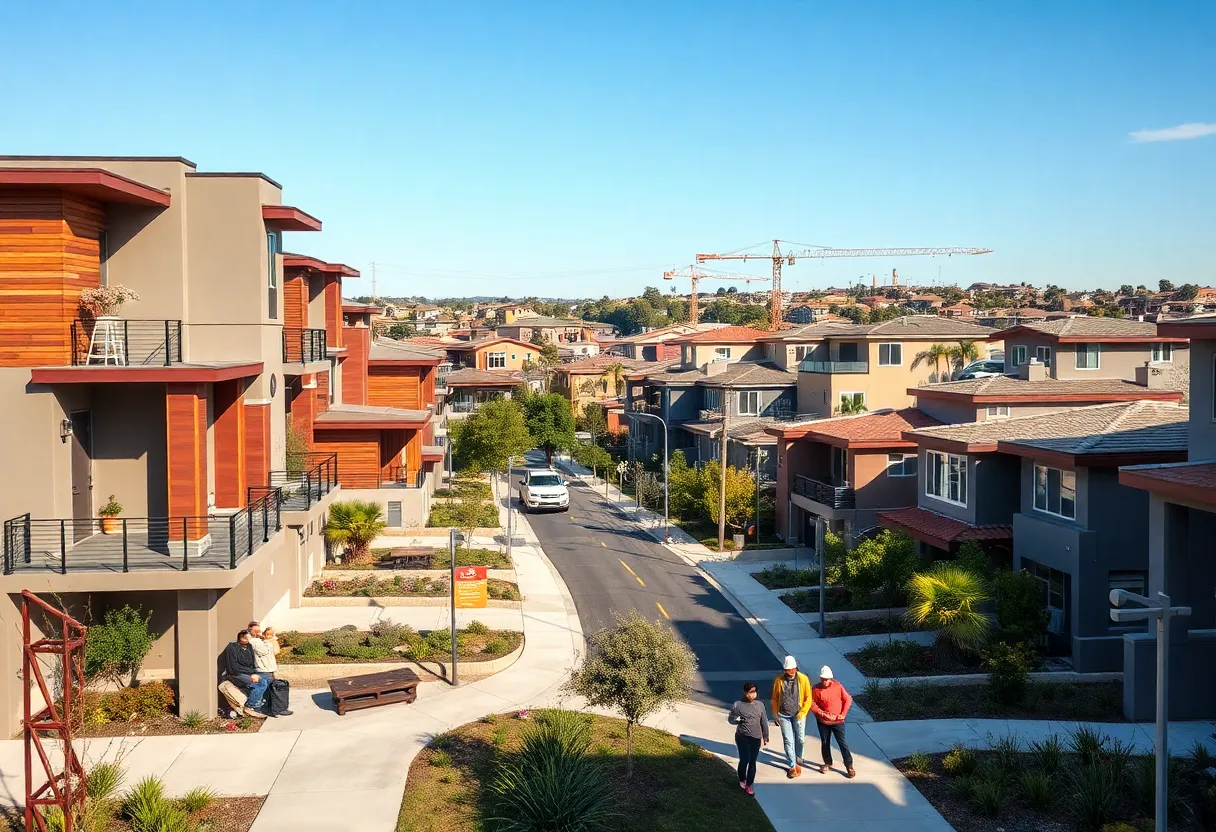News Summary
In a bid to tackle California’s housing crisis, Governor Gavin Newsom has signed two bills aimed at reforming the California Environmental Quality Act (CEQA). The reforms focus on expediting urban housing development, particularly in cities like San Diego, by allowing developers to bypass lengthy environmental review processes for certain projects. While housing advocates support these changes as necessary for alleviating the housing shortage, environmentalists express concerns about potential impacts on local biodiversity and community facilities.
San Diego – In a significant move to address California’s housing crisis, Governor Gavin Newsom has signed two crucial bills aimed at reforming the California Environmental Quality Act (CEQA). The new legislation is designed to facilitate the construction of housing in urban areas, particularly benefiting cities like San Diego, where development has often been stalled by lengthy environmental review processes.
The reforms, introduced and enacted as part of California’s new state budget, focus primarily on infill projects, allowing developers to build apartment complexes on sites previously occupied by shopping centers and other non-residential structures. This initiative seeks to expedite housing development in urban areas where demand is high but supply has lagged due to bureaucratic hurdles tied to CEQA.
CEQA, established in 1970, has historically been heralded for its role in protecting the environment but has faced increasing scrutiny for its impact on housing development. Critics argue that the act has been used excessively to obstruct various local projects that are not directly related to environmental concerns, such as recent proposals to demolish older buildings and develop housing on underutilized land like Qualcomm Stadium’s parking lot.
The new laws will primarily exempt most urban housing projects from CEQA-related lawsuits, enabling quicker approval times and lower construction costs. For example, bill AB 609 outlines specific criteria for projects that can bypass potential legal challenges, significantly benefiting housing advocates who assert that these changes will alleviate some of the regulatory burdens faced by developers.
While the reforms have been met with approval from housing advocates who view them as a necessary step towards resolving California’s severe housing shortage and affordability crisis, the changes are not without controversy. Environmentalists, including some from the Sierra Club, have raised concerns that these alterations could threaten local biodiversity, particularly for species like the gnatcatcher bird, which inhabit urban habitats that could be disrupted by new construction projects.
Moreover, the reform bills also extend exemptions to other critical community facilities such as childcare centers, farmworker housing, food banks, health care clinics, and advanced manufacturing facilities. However, there is apprehension that exempting manufacturing from CEQA could lead to negative outcomes for the environment, raising alarms among advocacy groups about the potential oversight of the act’s role in safeguarding underserved communities.
Despite these concerns, the bipartisan support for the legislation reflects a growing consensus around the need to expedite housing development in California, particularly in coastal regions where communities have been resistant to new construction. This legislative effort is part of a broader strategy by the Newsom administration to confront the challenges of housing scarcity that have plagued the state for years.
As the implementation of these reforms begins, uncertainties remain regarding how they will interact with ongoing CEQA lawsuits and projects that are currently stalled. Housing analysts express cautious optimism, suggesting that the changes could effectively reduce delays attributed to CEQA-related complaints. Nevertheless, factors such as rising construction costs and fluctuating interest rates continue to pose significant challenges to prospective housing developments.
Governor Newsom’s previous actions, which included waiving certain CEQA regulations for wildfire recovery efforts, have set a precedent for a reevaluation of how the law is applied in times of crisis. The current reforms represent a shift towards prioritizing housing needs while attempting to balance environmental protections, although the execution and impact of these new laws will continue to be closely monitored by advocates and critics alike.
Deeper Dive: News & Info About This Topic
HERE Resources
San Diego City Council Approves New ADU Regulations
Vacancy Rates Soar in Downtown San Diego
San Diego City Council Approves New Restrictions on ADUs
San Diego City Council Caps Backyard Apartments to Tackle Overdevelopment
San Diego Small Landlords Face Eviction Crisis
Inaugural Graduation for Incarcerated Scholars Program at SDSU
California Experiences Major Changes in Transportation and Business
California Housing Affordability Crisis Deepens in 2025
California Legislators Address Growing Voter Pessimism Over Cost of Living
San Diego Unified School District Faces $112 Million Budget Gap
Additional Resources
- San Diego Union-Tribune: California just overhauled its main environmental law
- Wikipedia: California Environmental Quality Act
- San Francisco Chronicle: CEQA housing roadblocks
- Google Search: California Environmental Quality Act reform
- Times of San Diego: Newsom signs bill rolling back CEQA
- Google Scholar: California housing crisis
- Axios: New push to exempt urban housing from CEQA
- Encyclopedia Britannica: California Environmental Quality Act
- Orange County Register: Lawmakers know CEQA is a bust








